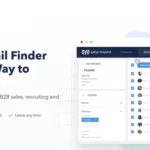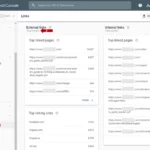While a degree in marketing or a related field is highly recommended, it is not always a requirement to become a marketing manager. Some individuals may enter the field with a degree in business administration, communications, or a related field. However, having a solid understanding of marketing principles and strategies through formal education or relevant certifications can greatly enhance your chances of success in the role.
Education and Experience
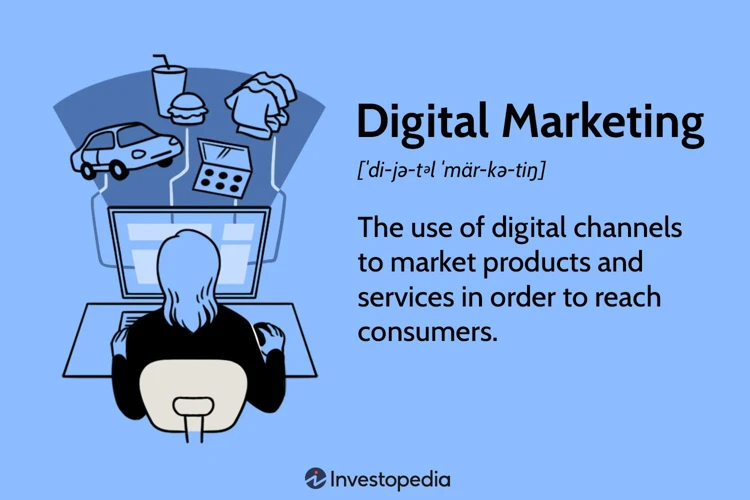
To become a successful marketing manager, it is important to pursue a relevant degree in marketing, business administration, or a related field. A degree program will provide you with a solid foundation of knowledge in marketing principles, consumer behavior, market research, and strategic planning. Consider enrolling in courses that focus on digital marketing, social media marketing, and analytics to stay ahead in the rapidly evolving marketing landscape. Additionally, obtaining a master’s degree in marketing or business administration can further enhance your skills and make you a competitive candidate in the job market. Remember to explore internships and co-op programs to gain real-world experience while studying, as this will give you an edge in the competitive marketing industry.
While education is important, practical experience is equally valuable in the marketing field. Look for internships, entry-level positions, or volunteer opportunities in marketing departments or agencies to gain hands-on experience. This practical exposure will allow you to apply the concepts you have learned in a real-world setting and develop a deeper understanding of marketing strategies and tactics. Consider working on marketing projects or campaigns, conducting market research, and analyzing data to sharpen your skills. Additionally, you can explore freelance opportunities or start your own marketing projects to further showcase your abilities and build a portfolio. Practical experience not only enhances your resume but also provides valuable insights and networks in the industry.
Marketing is a dynamic field that is constantly evolving with new technologies, trends, and consumer behaviors. To stay relevant as a marketing manager, it is crucial to continuously learn and stay updated with the latest industry developments. Attend conferences, workshops, and webinars to gain insights from industry experts and expand your knowledge base. Stay connected with professional marketing associations and online communities to exchange ideas and stay informed about emerging strategies and best practices. Additionally, invest time in self-learning by reading books, industry publications, and online resources. Keeping up with the latest trends and innovations will not only enhance your skills but also demonstrate your commitment to professional growth and development. Remember, the marketing landscape is ever-changing, and as a marketing manager, it is essential to adapt and embrace new approaches to stay ahead of the competition.
1. Pursue a Relevant Degree
Pursuing a relevant degree is a crucial step in becoming a marketing manager. A degree in marketing, business administration, or a related field provides a solid foundation of knowledge in marketing principles, consumer behavior, market research, and strategic planning. These courses will equip you with the skills necessary to understand target audiences, develop effective marketing strategies, and analyze market trends. Additionally, consider enrolling in courses that focus on digital marketing, as this field continues to grow in importance. Digital marketing courses will teach you how to leverage online platforms, social media, and analytics to reach and engage with your target audience effectively. By obtaining a relevant degree, you will have the necessary knowledge and skills to succeed in the competitive field of marketing. So, if you are serious about pursuing a career as a marketing manager, consider enrolling in a degree program that aligns with your career goals.
2. Gain Practical Experience
Gaining practical experience is crucial for aspiring marketing managers. It allows you to apply the theoretical knowledge you have gained and develop a deeper understanding of marketing strategies and tactics. There are several ways to gain practical experience in the field. One option is to seek internships or entry-level positions in marketing departments or agencies. These opportunities provide hands-on experience in executing marketing campaigns, conducting market research, and analyzing data. Additionally, volunteering for marketing projects or working on freelance assignments can help you build a portfolio and showcase your skills to potential employers. Another way to gain practical experience is by starting your own marketing projects or side hustles. This could involve creating and managing social media accounts, running online advertising campaigns, or developing a personal brand as a digital creator. By taking initiative and actively seeking opportunities to apply your marketing knowledge, you can gain valuable practical experience that will set you apart in the competitive job market. Whether it’s through internships, freelance work, or personal projects, practical experience is a vital stepping stone on the path to becoming a successful marketing manager. So, don’t hesitate to get out there and start gaining hands-on experience in the exciting world of marketing!
3. Continuously Learn and Stay Updated
To excel as a marketing manager, it is essential to have a growth mindset and a commitment to continuous learning. The field of marketing is ever-evolving, with new strategies, technologies, and consumer trends emerging regularly. Here are some effective ways to stay updated and continually enhance your skills as a marketing manager:
1. Industry Publications and Blogs: Subscribe to industry-specific publications and blogs that provide insights, case studies, and expert advice on the latest marketing trends and strategies. Websites such as MarketingProfs, HubSpot, and Moz offer valuable resources for staying updated.
2. Webinars and Online Courses: Participate in webinars and online courses offered by reputable organizations or industry experts. These platforms provide in-depth knowledge on various marketing topics, including social media marketing, content marketing, and SEO. By continuously upgrading your skills, you can stay ahead of the curve and implement the latest techniques in your marketing campaigns.
3. Attend Conferences and Workshops: Industry conferences and workshops offer opportunities to learn from industry leaders, gain insights into emerging trends, and network with other marketing professionals. Look for conferences such as the Content Marketing World, Social Media Marketing World, or the Marketing Innovation Summit. Attending these events can provide valuable knowledge and connections that can contribute to your professional growth.
4. Online Communities and Forums: Engage with online communities and forums in your niche. Platforms like LinkedIn groups, Reddit, and Quora allow you to interact with other marketing professionals, ask questions, and share knowledge. This collaborative environment fosters learning and keeps you updated on the latest industry discussions and challenges.
5. Networking Events: Attend local marketing networking events, meetups, or industry-specific gatherings. These events provide opportunities to connect with like-minded professionals, exchange ideas, and gain insights into industry practices. Building a strong professional network can open doors to new opportunities and keep you in the loop about industry updates.
Remember, the key to being a successful marketing manager lies in your ability to adapt and stay ahead of the curve. Continuously learning and staying updated will not only enhance your skills but also demonstrate your commitment to delivering effective marketing strategies in an ever-changing landscape. So, embrace the learning journey and keep evolving as a marketing manager.
Develop Leadership Skills
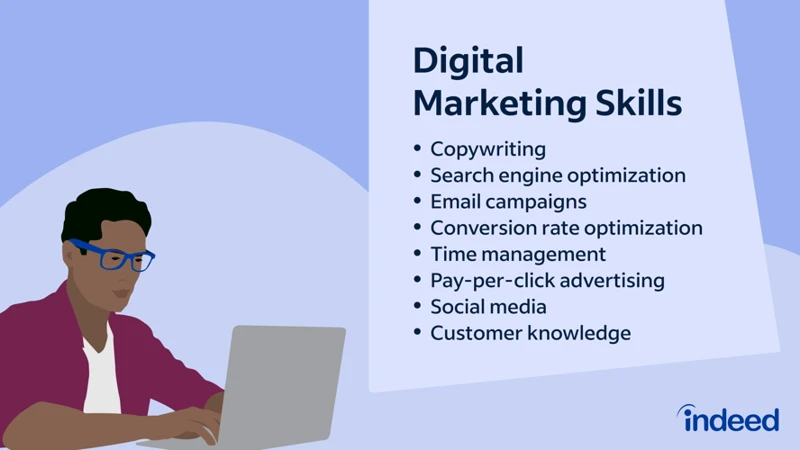
Developing strong leadership skills is essential for a marketing manager to effectively guide and inspire their teams. Here are some key areas to focus on:
1. Build Strong Communication Skills: Effective communication is crucial for a marketing manager to convey ideas, goals, and strategies to their team members and stakeholders. Develop excellent verbal and written communication skills to ensure clarity and understanding among team members. Active listening and the ability to provide constructive feedback are also important aspects of effective communication.
2. Develop Analytical and Problem-Solving Skills: As a marketing manager, you will often face challenges and obstacles that require quick thinking and problem-solving abilities. Strengthen your analytical skills by learning how to interpret data, analyze market trends, and identify opportunities for improvement. Develop problem-solving skills by approaching challenges with a strategic mindset and finding creative solutions.
3. Foster Creativity and Innovation: Marketing requires a constant flow of fresh and innovative ideas. Encourage creativity within your team by creating an environment that values and nurtures new ideas. Foster a culture of innovation by providing opportunities for brainstorming, experimentation, and collaboration. Embrace new technologies and trends to stay at the forefront of the industry.
4. Lead by Example: Leadership is not just about giving orders but also about setting an example for others to follow. Demonstrate professionalism, integrity, and a strong work ethic in your own actions and behaviors. Be open to feedback, show empathy, and inspire your team members to perform at their best.
5. Continuously Develop Leadership Skills: Leadership skills are not innate; they can be developed and improved over time. Invest in leadership development programs, workshops, and courses to enhance your leadership abilities. Seek mentorship opportunities or join professional networks to learn from experienced leaders in the field. Reflect on your own experiences and seek opportunities for self-improvement.
By developing strong leadership skills, you will not only be able to effectively manage your team but also inspire them to achieve their full potential and drive success in your marketing initiatives. So, embrace leadership development as an ongoing journey and continue to grow as a marketing manager.
4. Build Strong Communication Skills
Building strong communication skills is essential for a marketing manager. Effective communication allows you to convey ideas, strategies, and plans clearly and confidently to your team, clients, and stakeholders. To improve your communication skills, start by actively listening to others and seeking to understand their perspectives. This will help you build rapport and establish strong relationships. Additionally, practice articulating your thoughts and ideas concisely and persuasively, both verbally and in written form. Develop your presentation skills by participating in public speaking events or joining Toastmasters. Utilize technology tools to enhance your communication, such as video conferencing platforms and collaboration software. It’s also important to stay updated with the latest communication trends, such as utilizing social media and digital platforms to engage with your target audience. By continually honing your communication skills, you will be able to effectively convey your marketing strategies and collaborate with others to achieve success.
5. Develop Analytical and Problem-Solving Skills
Developing strong analytical and problem-solving skills is essential for a marketing manager. In today’s data-driven world, marketers need to be able to analyze large sets of data and extract meaningful insights to drive effective marketing strategies. To enhance your analytical skills, consider taking courses or workshops on data analysis, statistics, and marketing research. Familiarize yourself with tools and software that can help you analyze and interpret data, such as Google Analytics or social media analytics platforms. Additionally, practice solving marketing-related problems by working on case studies or simulations that require you to analyze the market, identify trends, and develop strategic solutions. Developing strong problem-solving skills goes hand in hand with analytical skills. As a marketing manager, you will encounter various challenges and obstacles, and being able to think critically and find creative solutions is crucial. Improve your problem-solving abilities by seeking out opportunities to tackle complex marketing problems, brainstorming innovative ideas, and collaborating with colleagues or industry experts. Continuously challenging yourself to find solutions to marketing challenges will not only strengthen your problem-solving skills but also demonstrate your ability to adapt and thrive in a dynamic marketing environment. Remember, being a successful marketing manager requires a combination of analytical thinking and creative problem-solving, so invest time and effort in developing these important skills.
6. Foster Creativity and Innovation
Fostering creativity and innovation is essential for a marketing manager to stay ahead in the competitive landscape. Here are some strategies to cultivate a creative mindset and encourage innovative thinking:
1. Embrace a diverse and inclusive work environment: Encourage a diverse team with individuals from different backgrounds, experiences, and perspectives. This diversity can bring fresh ideas and unique insights to the table, fostering creativity and innovation.
2. Encourage brainstorming sessions: Create a safe space for team members to brainstorm and share their ideas freely. Encourage them to think outside the box and explore unconventional approaches to problem-solving. Brainstorming sessions can spark creativity and lead to innovative marketing strategies.
3. Provide opportunities for professional development: Offer training programs, workshops, or courses that focus on creativity and innovation. These opportunities can help team members enhance their creative thinking skills and stay updated with the latest trends and techniques.
4. Encourage risk-taking and experimentation: Encourage team members to take calculated risks and explore new ideas. Provide a supportive environment where failure is seen as a learning opportunity rather than a setback. This will foster a culture of innovation and encourage individuals to think creatively without the fear of making mistakes.
5. Stay updated with industry trends and emerging technologies: Keep yourself informed about the latest industry trends, emerging technologies, and innovative marketing strategies. This knowledge will not only inspire you but also provide you with the tools and insights to implement creative and innovative marketing campaigns.
By fostering creativity and innovation within your team, you can develop unique marketing strategies that set your brand apart from the competition. Remember, being a marketing manager is not just about executing traditional marketing techniques but also about embracing new ideas and finding innovative ways to reach and engage with your target audience.
Master Marketing Strategies
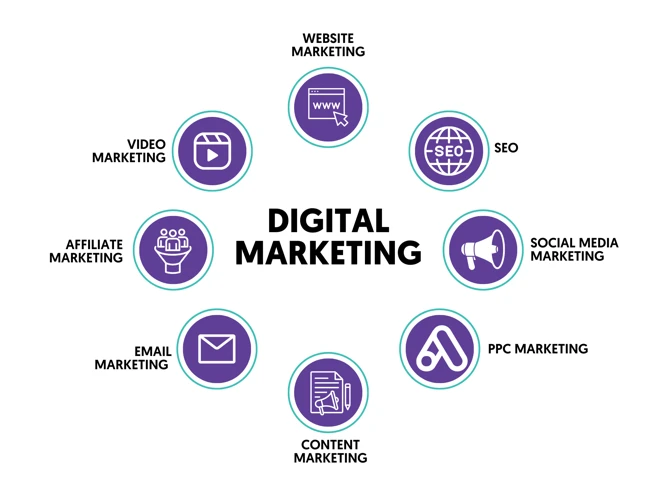
To excel as a marketing manager, it is crucial to master various marketing strategies that can effectively promote products or services and drive business growth. Understanding your target audience and market segmentation is the foundation of successful marketing. Conduct thorough market research to identify the needs, preferences, and behaviors of your target customers. This will enable you to create tailored marketing campaigns that resonate with them and generate higher engagement and conversion rates. Additionally, implementing effective marketing plans is essential. Develop comprehensive strategies that outline clear objectives, target markets, key messages, and the channels through which you will reach your audience. Regularly evaluate the success of your marketing efforts and make adjustments as needed to optimize results. Embracing digital marketing channels is also crucial in today’s digital age. Utilize social media platforms, email marketing, search engine optimization (SEO), and paid advertising to reach a wider audience and drive traffic to your website or online store. Stay updated with the latest trends and technologies in digital marketing to leverage new opportunities and stay ahead of the competition. Remember, mastering marketing strategies requires a combination of creativity, analytical skills, and continuous learning. By staying innovative and adaptable, you can create impactful marketing campaigns that drive business success. (Source: /how-to-start-marketing-career/)
7. Understand Target Audience and Market Segmentation
To be an effective marketing manager, it is crucial to have a deep understanding of your target audience and how to effectively segment the market. Understanding your target audience involves conducting thorough research to identify their demographics, psychographics, behaviors, and preferences. This knowledge will help you tailor your marketing strategies and messages specifically to appeal to your target audience. Utilize market research techniques such as surveys, interviews, and focus groups to gain insights into their needs, desires, and pain points.
Once you have a clear understanding of your target audience, market segmentation comes into play. Market segmentation involves dividing your target audience into distinct groups based on shared characteristics or needs. By segmenting the market, you can create more targeted and personalized marketing campaigns that resonate with each specific group. This allows you to deliver the right message to the right people at the right time, maximizing the effectiveness of your marketing efforts.
Segmentation can be based on various factors such as demographics, geographic location, psychographics, or behavioral patterns. By analyzing data and using tools such as customer relationship management (CRM) software, you can identify patterns and segment your audience accordingly. Each segment may require a different marketing approach, messaging, or even product offerings to effectively cater to their unique needs.
Understanding your target audience and effectively segmenting the market are essential steps in developing successful marketing strategies. By tailoring your messages and campaigns to specific segments, you can increase engagement, conversions, and ultimately drive business growth. To learn more about digital marketing and how it can help you reach your target audience, check out our article on how to be a digital creator.
8. Create and Implement Effective Marketing Plans
Creating and implementing effective marketing plans is a crucial aspect of being a marketing manager. A well-crafted marketing plan serves as a roadmap for achieving the organization’s marketing objectives and targets. To create an effective marketing plan, start by conducting thorough market research to understand your target audience, competition, and industry trends. This research will provide valuable insights that can inform your marketing strategies.
Once you have a clear understanding of your target audience, develop a comprehensive marketing strategy that aligns with your organization’s goals and objectives. This strategy should outline the key marketing tactics, such as advertising, public relations, social media, and content marketing, that will be utilized to reach and engage the target audience.
Next, create a detailed marketing budget that outlines the resources and funds required to execute the marketing plan. This budget should consider various factors, such as advertising costs, staff salaries, and promotional expenses. It is important to allocate resources efficiently to maximize the impact of your marketing efforts.
After developing the marketing plan, it is crucial to implement it effectively. This involves coordinating and collaborating with various internal teams, such as the creative team, sales team, and product team, to ensure seamless execution of marketing activities. Regularly monitor the progress of your marketing initiatives and make necessary adjustments to optimize results.
To measure the effectiveness of your marketing plan, track key performance indicators (KPIs) such as website traffic, conversion rates, customer acquisition costs, and return on investment (ROI). Analyzing these metrics will provide insights into the success of your marketing strategies and help identify areas for improvement.
Remember, creating and implementing effective marketing plans is an ongoing process. Regularly evaluate and update your marketing strategies based on changing market conditions, customer feedback, and emerging trends. By continuously refining your marketing plans, you can adapt to the evolving needs of your target audience and drive sustainable business growth.
To learn more about how to grow your online business, check out our article on how to grow your online business. It provides valuable insights and strategies to help you expand your online presence and boost your digital marketing efforts.
9. Utilize Digital Marketing Channels
Utilizing digital marketing channels is essential for a marketing manager in today’s technologically advanced world. Digital marketing provides a wide range of opportunities to connect with target audiences and drive business growth. Here are some key digital marketing channels to consider:
1. Social Media Marketing: Social media platforms such as Facebook, Instagram, Twitter, and LinkedIn offer a powerful way to engage with customers, build brand awareness, and drive website traffic. Create compelling content, leverage paid advertising options, and interact with followers to maximize the impact of social media marketing.
2. Email Marketing: Email marketing allows you to communicate directly with customers and prospects through personalized messages. Build an email list, segment your audience, and craft targeted campaigns to nurture leads, promote products or services, and drive conversions.
3. Search Engine Optimization (SEO): SEO is the process of optimizing your website to improve its visibility in search engine results. Conduct keyword research, optimize on-page elements, and build high-quality backlinks to rank higher in search engine rankings and drive organic traffic.
4. Pay-Per-Click (PPC) Advertising: PPC advertising platforms like Google Ads and Bing Ads allow you to display targeted ads to potential customers based on their search queries. Set a budget, select relevant keywords, and create compelling ad copy to attract clicks and drive website traffic.
5. Content Marketing: Content marketing involves creating and distributing valuable, relevant, and consistent content to attract and engage a specific target audience. Develop a content strategy, create informative blog posts, videos, infographics, and eBooks to establish your brand as a thought leader and drive audience engagement.
6. Influencer Marketing: Collaborating with influencers in your industry can help expand your reach and build credibility. Identify relevant influencers, establish partnerships, and leverage their social media platforms or blogs to promote your products or services.
7. Affiliate Marketing: Affiliate marketing involves partnering with affiliates who promote your products or services in exchange for a commission. Set up an affiliate program, recruit affiliates, and provide them with promotional materials and tracking links to generate sales.
8. Mobile Marketing: With the increasing use of smartphones, optimizing your marketing efforts for mobile devices is crucial. Develop mobile-friendly websites, create mobile apps, and leverage SMS marketing or push notifications to reach and engage with your audience on the go.
Remember, the key to successful digital marketing is understanding your target audience, selecting the most relevant channels, and creating compelling and targeted content. Continuously monitor and analyze the performance of your digital marketing campaigns to make data-driven decisions and optimize your strategies for maximum results.
Manage and Collaborate with Teams

Managing and collaborating with teams is a crucial aspect of being a marketing manager. Effective teamwork is essential for achieving marketing goals and driving success. Here are some key strategies to help you excel in managing and collaborating with teams:
10. Recruit and Motivate Team Members: As a marketing manager, it is important to assemble a team of talented and motivated individuals who can contribute to the success of your marketing campaigns. Look for candidates with diverse skill sets and a passion for marketing. Provide clear job descriptions and conduct thorough interviews to ensure a good fit. Once your team is in place, motivate them by recognizing their achievements, providing constructive feedback, and offering opportunities for growth and development.
11. Delegate Tasks and Provide Guidance: Effective delegation is crucial for managing a marketing team. Assign tasks based on individual strengths and skills, and clearly communicate expectations and deadlines. Provide guidance and support when needed, and encourage open communication to ensure that everyone is aligned and working towards the same goals. Regularly check in with team members to monitor progress and offer assistance when necessary.
12. Foster a Positive and Productive Work Environment: Creating a positive work environment is key to fostering collaboration and productivity. Encourage open communication, collaboration, and teamwork among team members. Foster a culture of trust and respect, where ideas can be freely shared and constructive feedback is welcomed. Provide opportunities for team-building activities and celebrate successes as a team. When team members feel valued and supported, they are more likely to contribute their best work.
In addition to these strategies, effective communication, active listening, and conflict resolution skills are essential for managing and collaborating with teams. Regularly communicate with team members to keep them informed about project updates, goals, and expectations. Actively listen to their ideas and concerns, and address any conflicts or issues that may arise in a timely and professional manner.
By implementing these strategies and fostering a collaborative work environment, you can effectively manage and collaborate with teams to achieve marketing success. Remember, a strong and cohesive team is the foundation for successful marketing campaigns.
10. Recruit and Motivate Team Members
Recruiting and motivating team members is a crucial aspect of being a marketing manager. To build a high-performing marketing team, it is important to attract talented individuals who possess the skills and qualities necessary for success in the field. Start by clearly defining the roles and responsibilities of each team member to ensure that you hire individuals who can effectively contribute to the team’s goals. Utilize various recruitment methods such as job postings, networking, and employee referrals to reach a wide pool of candidates. During the hiring process, assess candidates’ marketing knowledge, experience, and cultural fit to ensure a cohesive team dynamic.
Once you have assembled your team, it is essential to motivate and inspire them to perform at their best. Recognize and appreciate their hard work and accomplishments, as this will boost morale and foster a positive work environment. Encourage open communication and collaboration among team members to facilitate idea sharing and innovation. Provide opportunities for professional growth and development through training programs, workshops, and mentorship initiatives. This will not only enhance their skills but also demonstrate your investment in their personal and professional growth. Set clear goals and expectations for the team and provide regular feedback and performance evaluations to help them track their progress and improve their performance. By recruiting the right individuals and motivating them effectively, you can build a cohesive and high-performing marketing team that will drive the success of your marketing initiatives.
11. Delegate Tasks and Provide Guidance
In order to effectively manage a marketing team, it is important for a marketing manager to delegate tasks and provide guidance. Delegating tasks allows the manager to distribute the workload evenly among team members and ensure that each task is completed efficiently. When delegating, it is important to consider each team member’s strengths and weaknesses, and assign tasks accordingly. This not only maximizes productivity but also allows team members to develop their skills and grow professionally. It is important for the manager to clearly communicate expectations and provide detailed instructions for each task, ensuring that team members have a clear understanding of their responsibilities. Additionally, providing guidance throughout the process is crucial. This involves being available to answer questions, provide feedback, and offer support when needed. Regular check-ins and progress updates can help the manager stay informed about the status of each task and address any issues or challenges that arise. By effectively delegating tasks and providing guidance, a marketing manager can foster a collaborative and productive work environment, while also empowering team members to take ownership of their work.
12. Foster a Positive and Productive Work Environment
Creating a positive and productive work environment is crucial for a marketing manager to ensure the success and well-being of their team. Here are some key strategies to foster a positive work environment:
1. Encourage open communication: Establish a culture of open communication where team members feel comfortable expressing their ideas, concerns, and feedback. Encourage regular team meetings, one-on-one discussions, and provide opportunities for anonymous feedback to ensure everyone’s voice is heard.
2. Promote collaboration: Encourage collaboration and teamwork among team members. Foster a culture where everyone feels valued and respected, and where different perspectives are welcomed. Encourage cross-functional collaboration and provide opportunities for team members to work together on projects and initiatives.
3. Recognize and appreciate achievements: Recognize and appreciate the hard work and achievements of your team members. Celebrate successes, both big and small, and publicly acknowledge the contributions of individuals or teams. This not only boosts morale but also encourages a sense of pride and motivation among team members.
4. Provide opportunities for professional growth: Support the professional growth and development of your team members. Provide training opportunities, mentorship programs, and resources to help them enhance their skills and knowledge. Encourage team members to set goals and provide the necessary support to help them achieve their objectives.
5. Foster work-life balance: Encourage a healthy work-life balance among your team members. Promote flexible working arrangements, offer support for personal commitments, and encourage self-care. Recognize the importance of well-being and create an environment where employees can thrive both personally and professionally.
6. Lead by example: As a marketing manager, it is essential to lead by example. Demonstrate the behaviors and values you expect from your team members. Show integrity, professionalism, and a positive attitude. Be approachable, supportive, and accessible to your team members.
By fostering a positive and productive work environment, you can inspire your team members to perform at their best, increase their job satisfaction, and ultimately drive better results for your marketing initiatives. Remember, a happy and motivated team is key to achieving success in marketing management.
Measure and Analyze Results
To be an effective marketing manager, it is crucial to measure and analyze the results of your marketing efforts. Tracking key performance indicators (KPIs) is essential in evaluating the success of your marketing campaigns and making data-driven decisions. Start by identifying the relevant metrics for your specific goals, such as website traffic, conversion rates, customer acquisition cost, or social media engagement. Utilize analytics tools and software to monitor these metrics and generate detailed reports.
Track Key Performance Indicators (KPIs): Regularly monitor and track the KPIs that align with your marketing objectives. This could include metrics such as sales revenue, customer retention rates, lead generation, or return on investment (ROI). By tracking these indicators, you can identify trends, measure progress, and make informed decisions on how to optimize your marketing strategies.
Analyze Data and Extract Insights: Once you have collected the data, it’s time to analyze it to gain valuable insights. Use data visualization techniques to identify patterns, correlations, and trends in the data. This will help you understand the effectiveness of your marketing efforts and identify areas for improvement. Look for patterns in customer behavior, campaign performance, and market trends that can inform your future marketing strategies.
Make Data-Driven Decisions: Armed with the insights from your data analysis, you can make informed decisions about your marketing strategies. Use the data to identify what is working and what needs adjustment. Experiment with different approaches and measure the impact to continuously optimize your marketing efforts. This data-driven approach ensures that you are making decisions based on evidence rather than intuition, leading to more effective marketing campaigns and better results.
Remember, measurement and analysis are ongoing processes. Continuously monitor and evaluate your marketing activities to stay agile and responsive to changes in the market. By utilizing data to inform your decisions, you can maximize your marketing impact and drive business growth.
13. Track Key Performance Indicators (KPIs)
Tracking key performance indicators (KPIs) is a critical aspect of being a successful marketing manager. KPIs are measurable metrics that help evaluate the effectiveness of marketing efforts and determine the overall performance of a marketing campaign or strategy. By tracking KPIs, marketing managers can identify areas of success and areas that need improvement, allowing them to make data-driven decisions and optimize their marketing strategies.
One important KPI to track is the conversion rate, which measures the percentage of website visitors or leads that take a desired action, such as making a purchase or filling out a form. By monitoring the conversion rate, marketing managers can assess the effectiveness of their website design, content, and user experience, and make necessary adjustments to improve conversion rates.
Another crucial KPI is the customer acquisition cost (CAC), which calculates the amount of money spent on acquiring a new customer. This metric helps marketing managers understand the efficiency and cost-effectiveness of their marketing campaigns. By tracking the CAC, they can identify areas where resources are being wasted and optimize their marketing budget allocation.
Tracking the return on investment (ROI) is essential for measuring the profitability of marketing campaigns. ROI compares the revenue generated from marketing efforts to the cost of those efforts. This metric allows marketing managers to evaluate the success of their marketing initiatives and determine which campaigns are generating the highest return.
In addition to these KPIs, marketing managers should also track metrics such as website traffic, engagement rate, customer lifetime value (CLV), and customer satisfaction. Each of these metrics provides valuable insights into different aspects of the marketing strategy and helps guide decision-making.
To track KPIs effectively, marketing managers can utilize various tools and software, such as Google Analytics, CRM systems, or marketing automation platforms. These tools provide comprehensive data and analytics that enable marketing managers to monitor KPIs in real-time and make informed decisions based on accurate data.
By consistently tracking KPIs, marketing managers can measure the success of their marketing efforts, identify areas for improvement, and optimize their strategies to drive better results. It allows them to stay proactive, adapt to changing market conditions, and achieve their marketing objectives more effectively.
14. Analyze Data and Extract Insights
Analyze Data and Extract Insights
As a marketing manager, one of your key responsibilities is to analyze data and extract insights to inform your marketing strategies and decision-making. Data analysis allows you to understand the effectiveness of your marketing campaigns, identify trends, and make data-driven decisions to optimize your marketing efforts.
To effectively analyze data, start by collecting relevant data from various sources such as website analytics, social media platforms, customer surveys, and sales reports. This data can provide valuable information about customer behavior, preferences, and the performance of your marketing initiatives.
Once you have collected the data, use analytical tools and software to organize, clean, and process the data. This will help you identify patterns, correlations, and trends that can provide insights into the effectiveness of your marketing strategies. Look for key metrics such as conversion rates, click-through rates, and customer engagement levels to evaluate the success of your campaigns.
Data visualization tools can also be helpful in presenting complex data in a visually appealing and easily understandable format. Visualizations such as charts, graphs, and dashboards can help you communicate your findings to stakeholders and make informed recommendations.
In addition to analyzing quantitative data, don’t overlook the importance of qualitative data. This includes feedback from customers, focus groups, and online reviews. Qualitative data can provide valuable insights into customer preferences, pain points, and perceptions of your brand.
Once you have analyzed the data, it’s important to extract actionable insights that can guide your marketing strategies. Look for patterns and trends that can help you identify opportunities for improvement, target specific customer segments, or refine your messaging.
Regularly reviewing and analyzing data will help you stay agile and make informed decisions to optimize your marketing efforts. Keep in mind that data analysis is an ongoing process, and it’s important to continuously monitor and evaluate the performance of your marketing initiatives to ensure they align with your goals and drive results.
15. Make Data-Driven Decisions
Making data-driven decisions is a crucial aspect of being a successful marketing manager. In today’s digital age, there is an abundance of data available that can provide valuable insights into consumer behavior, market trends, and campaign performance. By utilizing data effectively, marketing managers can make informed decisions that drive results and optimize their marketing strategies.
1. Collect and analyze data: Start by collecting relevant data from various sources such as website analytics, social media metrics, customer surveys, and sales reports. Use tools like Google Analytics, Facebook Insights, and CRM software to gather and organize data in a structured manner.
2. Set key performance indicators (KPIs): Define specific metrics that align with your marketing goals and objectives. These could include conversion rates, customer acquisition costs, engagement metrics, or revenue generated. Setting clear KPIs will help you measure the success of your marketing efforts.
3. Use data visualization tools: Transforming data into visual representations such as charts, graphs, or dashboards can make it easier to interpret and identify trends or patterns. Tools like Tableau, Google Data Studio, or Excel can help you present data in a visually appealing and understandable way.
4. Identify insights and trends: Dive deep into the data to uncover valuable insights. Look for patterns, correlations, or anomalies that can inform your marketing decisions. For example, if you notice that a specific marketing channel is driving more conversions, you can allocate more resources to that channel.
5. Test and optimize: Use A/B testing or multivariate testing to experiment with different marketing strategies or tactics. By testing different variables such as ad copy, visuals, or landing page designs, you can identify what resonates best with your target audience and optimize your campaigns accordingly.
6. Monitor and track progress: Continuously monitor your KPIs and track the performance of your marketing initiatives. Regularly review the data to identify areas of improvement or areas where you are exceeding expectations. This will help you make data-driven decisions to optimize your marketing efforts.
7. Stay updated with industry trends: Keep an eye on industry trends and changes in consumer behavior. This will help you adapt your marketing strategies and make data-driven decisions that align with the evolving needs and preferences of your target audience.
By making data-driven decisions, marketing managers can ensure that their strategies are based on actual insights rather than assumptions. This approach not only enhances the effectiveness of marketing campaigns but also enables managers to allocate resources more efficiently and achieve better ROI.
Conclusion
In conclusion, becoming a marketing manager requires a combination of education, practical experience, and continuous learning. By pursuing a relevant degree, gaining hands-on experience, and staying updated with the latest industry trends, you can develop the necessary skills to excel in this dynamic field. As a marketing manager, you must possess strong leadership skills, effective communication, and problem-solving abilities to drive successful marketing campaigns. Additionally, mastering marketing strategies, understanding target audiences, and utilizing digital marketing channels are key components of the role. Managing and collaborating with teams, measuring and analyzing results, and making data-driven decisions are crucial for achieving marketing objectives. With dedication, perseverance, and a passion for marketing, you can embark on a rewarding career as a marketing manager and make a significant impact in the business world. So, start taking the necessary steps today and unleash your potential as a marketing leader.
Frequently Asked Questions
1. Can I become a marketing manager without a degree in marketing?
While a degree in marketing or a related field is highly recommended, it is not always a requirement to become a marketing manager. Some individuals may enter the field with a degree in business administration, communications, or a related field. However, having a solid understanding of marketing principles and strategies through formal education or relevant certifications can greatly enhance your chances of success in the role.
2. What skills are important for a marketing manager?
Marketing managers need a combination of both technical and soft skills. Technical skills include proficiency in digital marketing, data analysis, and marketing software. Soft skills such as communication, leadership, creativity, and problem-solving are also essential for managing teams, collaborating with stakeholders, and developing effective marketing strategies.
3. How can I gain practical experience in marketing?
You can gain practical experience in marketing through internships, entry-level positions, volunteer opportunities, or by working on freelance projects. These experiences allow you to apply theoretical knowledge in real-world scenarios, develop key marketing skills, and build a professional network.
4. What is the role of market research in marketing management?
Market research plays a vital role in marketing management as it helps identify target audiences, understand consumer behaviors, and gather insights for effective marketing strategies. It involves collecting and analyzing data to make informed decisions about product development, pricing, promotions, and market segmentation.
5. How can I stay updated with the latest marketing trends?
To stay updated with the latest marketing trends, you can attend industry conferences, workshops, and webinars. Joining professional marketing associations and online communities can also provide opportunities to learn from industry experts and exchange ideas with peers. Additionally, reading books, industry publications, and following reputable marketing blogs can keep you informed about emerging strategies and best practices.
6. What are some digital marketing channels that marketing managers should utilize?
Marketing managers should utilize various digital marketing channels such as search engine optimization (SEO), social media marketing, email marketing, content marketing, and paid advertising. Each channel serves a different purpose and can help reach and engage target audiences effectively.
7. How can I measure the success of my marketing campaigns?
Measuring the success of marketing campaigns involves tracking key performance indicators (KPIs) such as website traffic, conversion rates, click-through rates, and customer engagement. Analyzing these metrics and comparing them against predefined goals can provide insights into the effectiveness of your campaigns and help optimize future marketing efforts.
8. How important is teamwork in marketing management?
Teamwork is crucial in marketing management as it involves collaborating with various stakeholders, such as designers, copywriters, and sales teams, to develop and execute marketing strategies. Effective teamwork fosters creativity, enhances productivity, and ensures the successful implementation of marketing campaigns.
9. How can I develop my leadership skills as a marketing manager?
You can develop your leadership skills as a marketing manager by taking on leadership roles in team projects, seeking mentorship from experienced professionals, and attending leadership development programs. Additionally, practicing effective communication, setting clear goals, and providing guidance and support to your team members can help you become a successful marketing leader.
10. What are some ethical considerations in marketing management?
Marketing managers need to consider ethical considerations such as truthfulness in advertising, protecting consumer privacy, and avoiding deceptive practices. They should also ensure that marketing campaigns and strategies align with legal and regulatory frameworks in their industry. Adhering to ethical practices fosters trust and credibility with customers and helps build a positive brand image.





